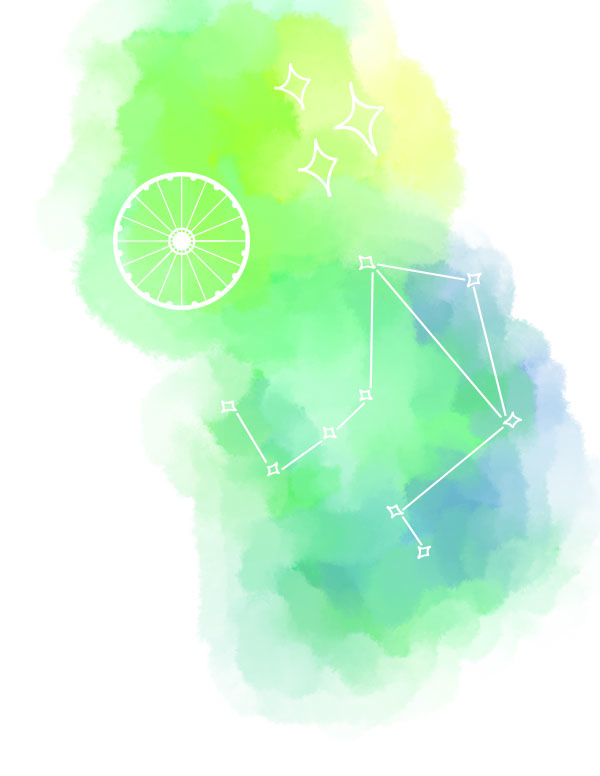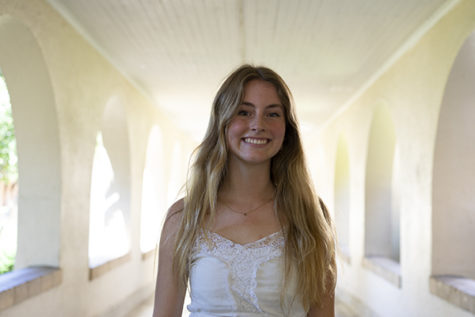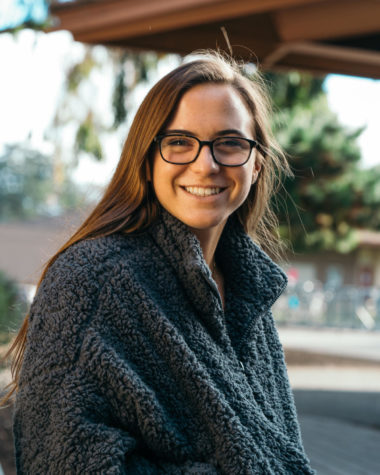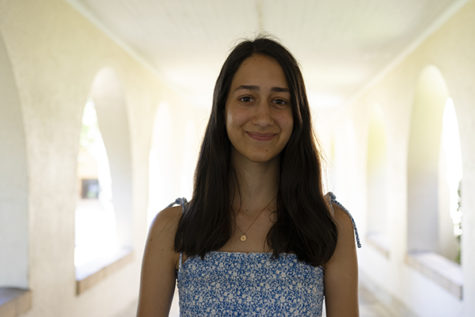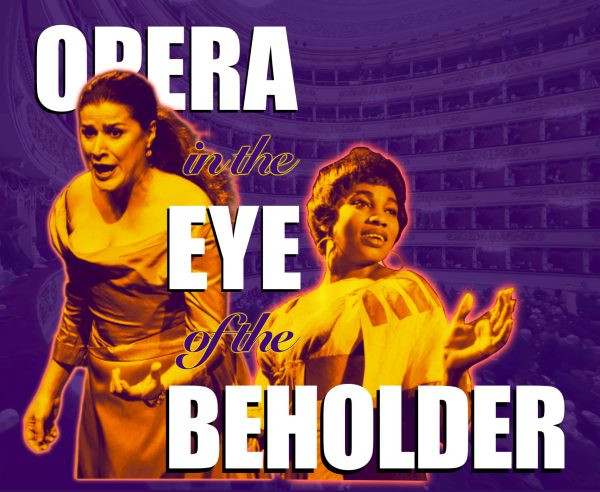Faith or Flow
Religion and spirituality differ, yet coincide in the sole purpose of granting meaning to the life of an individual.
 Humans have always looked for a force greater than themselves to define life’s meaning and purpose in attempts to understand their circumstances. For centuries, religion and its practices have been the primary source of fulfilling these inclinations. Faith has impacted civilizations through the ideals and ethics of different cultures for centuries. However, there is also a more extreme and rare side to religion that has ignited revolutions and isolated differing cultures from one another. For many, an alternative to traditional religious customs is an emerging practice rooted in history and centered around self-discovery: spirituality. Although spirituality and religion are generally interpreted as two separate concepts, they both serve one essential purpose. To grant a practice, whether it be prayer or meditation, that achieves the hopes of those who seek a sense of meaning in their lives and an alignment with a greater force than themselves.
Humans have always looked for a force greater than themselves to define life’s meaning and purpose in attempts to understand their circumstances. For centuries, religion and its practices have been the primary source of fulfilling these inclinations. Faith has impacted civilizations through the ideals and ethics of different cultures for centuries. However, there is also a more extreme and rare side to religion that has ignited revolutions and isolated differing cultures from one another. For many, an alternative to traditional religious customs is an emerging practice rooted in history and centered around self-discovery: spirituality. Although spirituality and religion are generally interpreted as two separate concepts, they both serve one essential purpose. To grant a practice, whether it be prayer or meditation, that achieves the hopes of those who seek a sense of meaning in their lives and an alignment with a greater force than themselves.
Both religion and spirituality are accompanied by negative connotations that shape how one perceives them. Spirituality can be viewed as a self-centered adaptation of religion based on the fundamental aspect of personal-discovery. Alternatively, religion can be viewed as life-controlling and fear-based. This is driven by the possible notion that it is often blindly-followed by those who are introduced to religious practices. In reality, they have various meanings based on individual personal preference and interpretation. While they both center around a divine power derived from a supernatural being, spirituality focuses on a power that is mainly internal and religion commonly finds this in an external force.
More specifically, spirituality defines an individual’s sacred path of connecting with greater force to find personal identity and purpose. The phrase “in the flow” illustrates a feeling that many spiritual people experience when they give up control to align with a higher power. This ideology is prominent within the traditional beliefs of Native Americans and is described as a force that intertwines all paths of life. The notion of spirituality consists of thought-provoking questions such as: where are sources of happiness? What is the meaning of love? What do I fear most? How do I want to be remembered? Finding these answers helps individuals move past self-created barriers in order to fully devote themselves to a higher awareness of life and its true meaning.
Religion can also include an intricate path to self-discovery, found through the faith and worship of a super-human power and the search for salvation. People who center their lives around religious practices usually find a sense of purpose and a moral code they agree with. Religion also establishes reliable and loyal communities that are joined by similar beliefs and participation in devotional rituals.
Amy Cassell
“I began memorizing bible verses at the age of two,” said Bay Area parent, Amy Cassell, who grew up in South Carolina and was introduced to religion at a very young age. A majority of her adolescent life was filled by apocalyptic conspiracies from her father, who was a fundamentalist Christian, such as not being able to celebrate certain holidays, including Halloween, as they were considered Pagan, and devoted everyday life to the worship of God.
It wasn’t until high school that Cassell decided that her beliefs didn’t align with the values she grew up with and began to break away from her father’s strict rules in order to discover her own beliefs. Her sophomore year of high school, she began to attend an Evangelical church. This was a life-altering experience as the church introduced new experiences and showed her an alternative approach to religion. Despite this new approach, Cassel continued to be uncomfortable with the notion of baptism and the meaning it carries: in order to be saved and go to heaven, one has to be baptized. “I had an issue with the fact that there were people who were on the planet before Jesus and people who have never heard of him, so how could [those people have been] saved,” Cassell said.
Cassell explained how she carried that confusion for years and despite trying to come to terms with it, it was never truly resolved. To attempt to answer her question, Cassel looked towards the Mormon teachings. “I was attracted to their view that even if you weren’t baptized in your lifetime, you could be after you die…and still, be saved,” Cassell said.
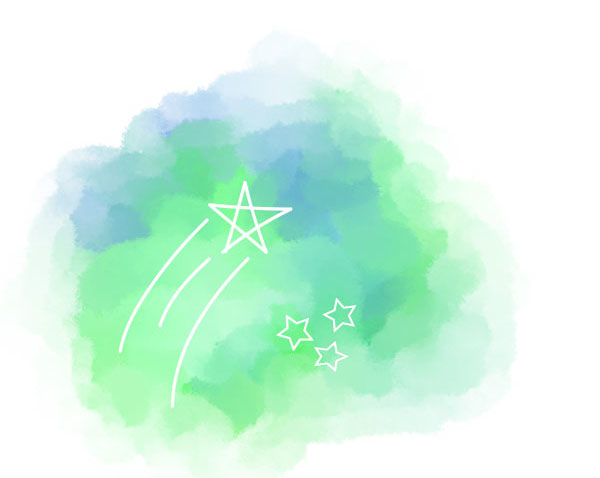 Despite discovering an answer to one of her issues with the Christian religion, the Mormon faith was unable to relieve the sense of dogma Cassell felt with organized religion. This caused her to look to a manner of spiritual fulfillment that lay beyond the boundaries of religion.
Despite discovering an answer to one of her issues with the Christian religion, the Mormon faith was unable to relieve the sense of dogma Cassell felt with organized religion. This caused her to look to a manner of spiritual fulfillment that lay beyond the boundaries of religion.
Cassell befriended a woman who defines herself as a Celtic Druid and actively believes in connecting with the earth and energetic fields that lay below ground called ley lines. “I have had a few fascinating experiences where I haven’t interacted with her in a long time or told her what was going on with me,” Cassell said. “And she has done a reading [with tarot cards] and pulled cards which said things that really made me pause and wonder ‘how the heck did you know that?’”
Cassell explained how she was also introduced to Tibetan Buddhism, where she became immersed in meditation and worshiped with a group of people lead by a Rinpoche, a group of monks who are highly respected religious teachers in the religion. Cassell says “Learning about all of that is when I did a lot of work around setting an intention around becoming a mom.”
Despite her longing for motherhood, Cassell was unable to have her own child. “Within a year of that occurring, Stephanie [the birth mother of Cassell’s adopted daughter] came to me. I believe that being exposed to all of that created the path that lead me to Catie [Cassell’s daughter]”
Along with Buddhism and Druidism, Cassell spent much of her journey exploring energy fields which flow throughout the body by having Reiki, a healing technique where therapists channel energy into a patient, performed on her as a way to restore her physical and emotional well being. Cassell says “I have had people do energy work on me and know things that were going on with me physically as well as in my life in other ways, even without me speaking of them.”
As of today, Cassell has used all of her experiences, religious and unconventional, to decipher her personal beliefs. “It is fascinating to me that there is truly a lot of overlap,” Cassell said. “I have decided [that] because of the overlap and because I see value in many different pieces, whether it be spiritual practices or religious beliefs, [it has] caused me to synthesize those pieces and come up with what truly resonates with my spirit.”
Antonia Martinez
Antonia Martinez, a Bay Area 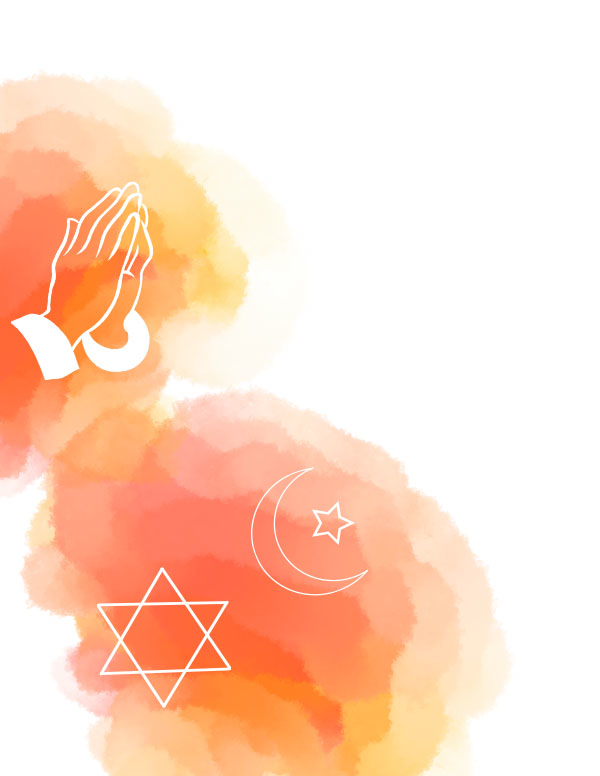 community member, discovered her relationship with religion in order to overcome times of grief due to the loss of loved ones in her life. Growing up in a low-income neighborhood in East Los Angeles and raised Catholic, religion was a huge part of her life, she says “I would pray every night before bed, asking God to make sure no one in my family was shot or killed.”
community member, discovered her relationship with religion in order to overcome times of grief due to the loss of loved ones in her life. Growing up in a low-income neighborhood in East Los Angeles and raised Catholic, religion was a huge part of her life, she says “I would pray every night before bed, asking God to make sure no one in my family was shot or killed.”
She never thought her ideas of her faith would change. Upon leaving her Catholic community at 18, she began to read the Bible in a more investigative and curious manner than in her childhood. Through further research, Martinez felt that Catholicism was more of an interpretation, only loosely based on the literal passages of the Bible. This was a turning point for her becoming a “born-again” Christian, one who no longer blindly follows a religion after discovering a personal form of faith.
Growing up Martinez remembered acting and behaving in certain ways, in fear of God’s punishment. But once she converted, she felt as if she discovered God with a new identity; a forgiving and loving one. After converting, Martinez’s genuine faith is one that is so deeply involved in her life and even gives her a sense of peace and comfort.
After her religious realization, Martinez lost her father. This was a difficult time for her, but even in the deepest times of loss and sadness, she found great comfort in religion and firmly believed in God’s plan for her. Weeks before her wedding to her college sweetheart, the couple was jumped by people in the streets of New York, resulting in the murder of Martinez’s fiancé. After these losses, Martinez was consumed by depression, briefly questioning her faith, yet these thoughts of uncertainty were soon diminished. Martinez said, “I had to practice faith in order to realize God’s plan is greater than my own.”
Throughout this journey, Martinez continued to grow as a “born-again” Christian while still following God’s agenda for her. Religion and the uttermost faith that comes along with it, has been a guiding light that has encouraged Martinez to allow it as a governing aspect of her life.


